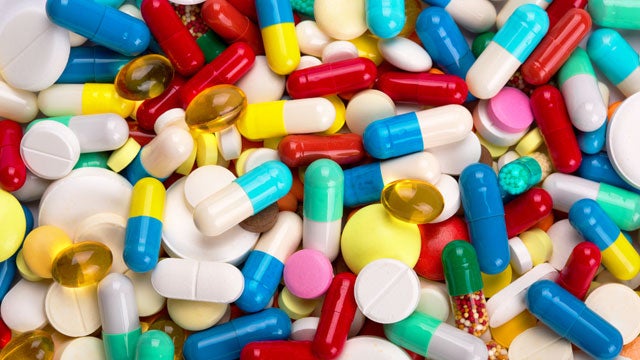In June, at this year’s conference in Barcelona, Mari Carmen Gomez-Cabrera, a physiologist at the University of Valencia and one of the world’s leading experts on antioxidants, was debating the merits of supplements with two top researchers. For more than 90 minutes they went back and forth, parsing the accumulated evidence in front of a packed auditorium. Finally, Gomez-Cabrera landed on a provocative question that summarized her position.
The debate, she explained, isn’t whether supplements are good or bad for athletes. Rather, it’s “are they useless, or are they worse than useless
The question may come as a shock to the more than half of Americans who take some sort of dietary supplement—a vast catch-all term that includes everything from vitamins and minerals to herbal remedies to exotic performance boosters like deer-antler spray and glutamine. It’s no surprise that the purported muscle-building supplements make unproven claims and may come with hazardous side effects. But in the past few years, Gomez-Cabrera and a growing number of researchers have come to believe that even respectable mainstream supplements like vitamins C and E suffer from the same basic flaw: few apparent benefits and increasing evidence of negative effects. For example, in July’s issue of the , researchers discovered that resveratrol, an antioxidant in red wine, actually limited the positive effects of cardiovascular exercise—like an increased VO2 max—when taken daily in high concentrations. In July, scientists at the Fred Hutchinson Cancer Research Center found that men with high levels of the omega-3 fatty acid DHA in their blood, often from fish-oil supplements, had a significantly greater risk of prostate cancer.
According to Pieter Cohen, a professor at Harvard Medical School, there are really only two types of sports supplements: those that are safe but don’t work, and those that might work but have side effects, especially at higher than normal levels. “If any supplement, no matter how beneficial, has a pharmaceutical effect, it’s also got a downside,” he says. “There’s no way to get around that basic principle.”
Most supplements stay firmly in the first category. Taking a daily multivitamin, Cohen emphasizes, won’t harm you, but it usually won’t help either, which is why major health organizations like the American Heart Association and the American College of Sports Medicine don’t recommend supplements to healthy people.
It’s not that vitamins and minerals aren’t important. If you don’t get enough vitamin C, you can get scurvy; without enough iron, you can become anemic; and if you live far enough north to see Russia from your backyard, you may need some extra vitamin D. But all three of these substances have also been linked to negative effects at high doses. Same goes for prolonged use of other common supplements like vitamin E and calcium. In short, unless tests have shown that you’re low in a particular vitamin or mineral, there’s no evidence to suggest that you should take a daily supplement.
That rule also applies if you’re an athlete who takes supplements because, say, you assume your training requires an anti-oxidant boost to speed recovery. Gomez-Cabrera and her colleagues at the University of Valencia have shown that antioxidant supplements suppress the oxidative stress that signals your body to adapt and get stronger. The result: regular use of something seemingly innocuous like vitamin C can actually block gains in endurance-boosting mitochondria.
The balance between risk and return also works in subtler ways, as Wen-Bin Chiou, a psychologist at National Sun Yatsen University in Taiwan, has shown in a series of experiments on a phenomenon called the licensing effect. As part of a battery of tests, subjects were asked to take a pill; half were told the pill was a multivitamin, while the other half were told it was a placebo. In truth, they were all placebos.
In subsequent tests, the subjects who thought they’d taken a vitamin consistently behaved in less healthy ways. When asked to try out a pedometer, they were more likely to choose a shorter walking route; at lunch, they chose less healthy food. In follow-up studies, Chiou has also discovered that smokers who think they’ve been given a vitamin smoke more, and people who are given a weight-loss supplement are less likely to stick to their diet. The same thing happens when you go to the gym or eat a plate of spinach. The difference is that exercise and vegetables have real benefits, so you’ve still got a chance to come out ahead. If you take a pill with no benefits, the best you can do is break even.
Which brings us back to Gomez-Cabrera in Barcelona. She, of all people, has enormous respect for the powers of micronutrients like antioxidants—she has devoted her life to studying them. “But if you eat enough fruits and vegetables, five servings a day,” she says, “I don’t think you need anything else.” And if you’re not eating like that, then taking a pill isn’t a solution. In fact, it may be part of the problem.
Supplements: The Good and the Bad

There's scant evidence for the effectiveness of most supplements. But here are a few to consider—and a few to shy away from.
The Good
- Antioxidants: Regular use can interfere with training adaptations, but a regimen lasting no more than a week can help your body cope with added stress like recovering from a race or a trip to altitude.
- Caffeine: The most versatile and powerful performance enhancer out there, boosting both brain and muscle function.
- Creatine: The one (legal) weight-room powder that does result in muscle-mass gains.
- Vitamin D: Good diet alone often won't meet your D needs. Get tested to confirm a deficiency, then consider adding up to 600 IUs per day.
The Bad
- Calcium: It's an effective way to strengthen bones, but in high doses it may also harden arteries. Get your fill through dietary sources like yogurt and broccoli.
- Vitamins A, C, and E: Taken over extended periods and at high doses, beta-carotene and vitamins A, C, and E have all been linked to increased cancer risk and higher death rates, and they may get in the way of exercise adaptations.
- Workout boosters: If a product claims to increase energy or enhance muscle growth, it's almost certainly misleading you or contains an unlabeled stimulant or steroid.


